Helen Keller - Biography
Introduction:
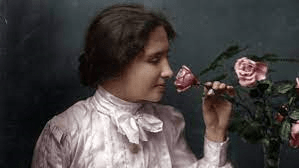
Helen Keller was a lecturer, political activist, and novelist from the United States. She is primarily known for being the first deaf and blind woman to earn a bachelor's degree in the arts. She is considered a role model for persons with disabilities because of her vitality and inspiration. Keller is most known for her autobiography, "The Story of My Life," and other excellent essay collections such as "Out of the Dark." Keller published many books and essays on socialist and spiritual subjects.
Keller's life has been the subject of several films, television shows, and documentaries. Keller was the driving force behind the 'American Foundation for the Blind,' for which she garnered cash. Keller received numerous posthumous awards. Many hospitals and foundations dedicated to the disabled have been named after her.
Keller inspires millions of people worldwide and is the focus of art and educational events. After her passing, Alabama's 'The 50 State Quarters' program honored her. She was also selected for Gallup's "Most Admired People of the Twentieth Century" list. In addition, she has a bronze statue in the 'National Statuary Hall Collection.'
Helen Keller Childhood:
Helen Keller was born Helen Adams Keller in Tuscumbia, Alabama, on 27 June 1880. Helen's grandfather built and owned the house where Keller's family lived. Arthur H. Keller, Helen's father, served as a captain in the 'Confederate Army' and was employed as an editor for the Tuscumbia North Alabamian.
Helen's paternal heritage follows back to Casper Keller, a Swiss. Helen's Swiss ancestor, according to family history, was the city's first deaf teacher. Helen would later write in her first autobiography, "There is no king among his ancestors who has not had a slave among them, and no slave who has not had a king among them. Helen did not come into this world deaf and blind. However, she was afflicted with a disease that caused her to become ill. Her doctors diagnosed her illness as "acute stomach and brain congestion," which is now suspected to be scarlet fever or meningitis. Her illness did not last long, but it did cause her to lose her hearing and vision.
Helen could only converse with Martha Washington, Helen's family cook's daughter when she was a child. Martha mostly comprehended Helen's indications. Helen communicated with her family using 60 different home signals. Helen's father accompanied her to Baltimore to see Dr. J. Julian Chisolm, an ophthalmologist, and ear, nose, and throat specialist. Helen was being sent to a professional learning procedure for the first time. An incident had inspired her mother in Charles Dickens' 'American Notes,' where another deaf and blind woman, Laura Bridgman, had received a successful education.
Her illness did not last long, but it did cause her to lose her hearing and vision. Helen could only converse with Martha Washington, Helen's family cook's daughter when she was a child. Martha mostly comprehended Helen's indications. Helen communicated with her family using 60 different home signals. Helen's father accompanied her to Baltimore to see Dr. J. Julian Chisolm, an ear, eye, nose, and throat specialist. Helen was being sent to a professional learning procedure for the first time. An incident had inspired her mother in Charles Dickens' 'American Notes,' where another deaf and blind woman, Laura Bridgman, had received a successful education.
Helen and her father were sent to Alexander Graham Bell by Dr. J. Julian Chisolm to work with deaf youngsters. Laura Bridgman had earned her official education at the 'Perkins Institute for the Blind,' which Bell brought Helen and her family to. Helen had found a teacher in Anne Sullivan, a former Perkins student (who had been blind for 20 years). Michael Anagnos, Perkins' director, personally recommended Anne.
Writing Career:
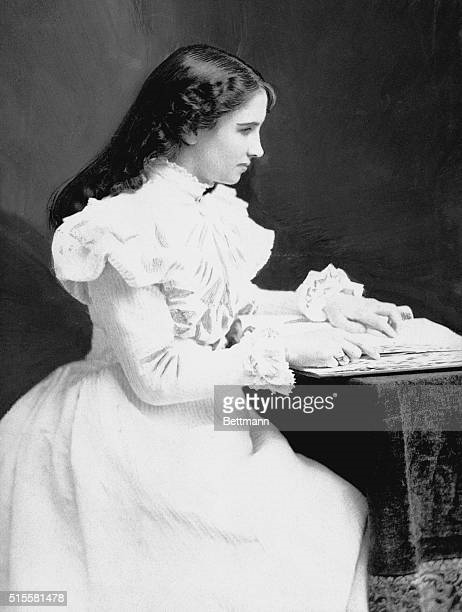
Helen also wrote 12 books, all published and other publications. 'The Frost King' was one of Helen's earliest acknowledged works (1891). Helen suspected plagiarism in the book Margaret Canby's 'The Frost Fairies.' Thoroughly investigated Helen's work after the reported plagiarism was condemned. Keller was discovered to have suffered from cryptomnesia and may have retold Canby's narrative, which was recounted to her as a child. The Story of My Life,' Keller's autobiography, was issued in 1903 when she was 22 years old. Keller penned 'The World I Live In' in 1908, in which she expressed her views about the world she was living in.
Education:
After arriving at Helen's home in March 1887, Anne Sullivan began teaching her. Helen was first taught how to communicate through hand signs by Anne. Frequently took, Keller took in profile because of her prominent left eye. When Keller became an adult, they replaced both of her eyes with glass replicas.
Helen entered the Perkins Institution for the Blind in May 1888. In 1894, Helen Keller and Anne Sullivan moved to New York to study at the Wright-Humason School for the Deaf.' Sarah Fuller taught them at the 'Horace Mann School for the Deaf.' When Keller and Sullivan moved to Massachusetts in 1896, Helen Keller registered at 'The Cambridge School for Young Ladies.'
Helen Keller's efforts were admired by Mark Twain, who assisted her by introducing her to Standard Oil magnate Henry Huttleston Rogers, who, along with his wife, supported Helen's schooling. Helen was accepted to 'Radcliffe College' in 1900, and she lived in Briggs Hall, South House. Keller became the first deaf and blind person to acquire a Bachelor of Arts degree when he graduated from 'Radcliffe College' in 1904 at the age of 24.
Awards and Honours:
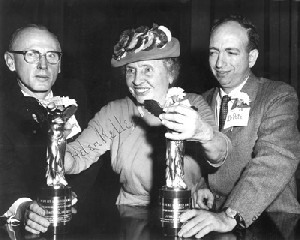
1. The Presidential Medal of Freedom was bestowed upon her in 1964.
2. According to TIME magazine, he is one of the 100 most influential people of the twentieth century.
3. In 1980, the US Postal Service issued a commemorative stamp.
4. During the US Mint's commemorative 50 State Quarters Program, Alabama released a quarter with Helen Keller on it, and she was inducted into the Alabama Women's Hall of Fame.
Socio-Political Activities:
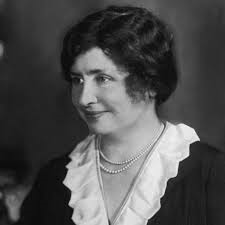
Helen Keller went on to become a well-known author and orator. She is still recognized for her tireless work and contributions to the cause of individuals with disabilities and a variety of other social concerns. Helen was an outspoken advocate for birth control and women's rights and a lifelong pacifist. Helen was adamant in her opposition to Woodrow Wilson's policies.
Keller was a socialist who advocated for drastic changes. She was a vocal opponent of parliamentary socialism, which she described as "sinking in the political swamp. Keller joined the "Industrial Workers of the World" (also known as the "Wobblies") in 1912.
Keller and Sullivan visited 40 different countries. In 1915, she co-founded the Helen Keller International (HKI) organization with George Kessler. Vision, health, and nutrition were among the topics investigated by the organization. Helen was instrumental in the formation of the 'American Civil Liberties Union in 1920. (ACLU).
Helen and Sullivan went to Japan, where Helen became a popular figure among the Japanese. Alexander Graham Bell, Charlie Chaplin, and Mark Twain were among the celebrities with whom she formed friendships. Keller visited seven American presidents during her journeys and political commitments, ranging from Grover Cleveland to Lyndon B. Johnson.
Helen Keller became engaged in activism due to her concern for people who were blind or disabled.
From 1916 to 1918, she was a frequent contributor to 'IWW’. She wrote in one of her social activity articles. “For the first time, I realized that a large portion of blindness could be traced back to poor working circumstances, frequently driven by employers' selfishness and avarice. And the social evil had a hand in it. Poverty, I discovered, pushed women to a life of humiliation, which resulted in blindness."
From 1909 through 1921, Keller was a participant of the 'Socialist Party,' fiercely agitating and authoring many articles on behalf of the working class. Heller backed Eugene V. Debs of the 'Socialist Party in all of her presidential runs.
Famous quotes by Helen Keller:
1. The most beautiful and best things in the world are not visible or even touchable. They have to be experienced with the heart.
2. 'Character development cannot take place in peace and quiet. The soul can only be strengthened, vision cleared, ambition motivated, and success realized through hardship and suffering.'
2. 'It is up to you to be successful and happy.' Resolve to be happy, and you and your joy will form an invincible force against adversity.'
Final Years and Death:
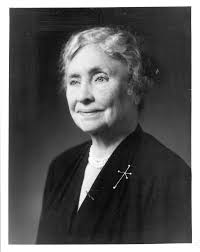
In 1961, Helen Keller suffered numerous strokes. She was strictly limited to her home in her retirement years. Keller died peacefully in her sleep at her 'Arcan Ridge' house in Easton, Connecticut, on June 1, 1968. President Lyndon B. Johnson presented her with the renowned 'Presidential Medal of Freedom,' which is considered one of the highest civilian distinctions in the United States, on September 14, 1964.